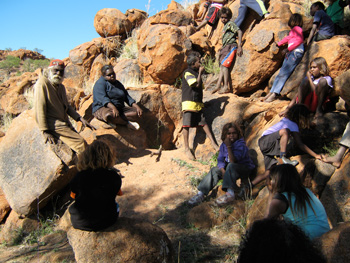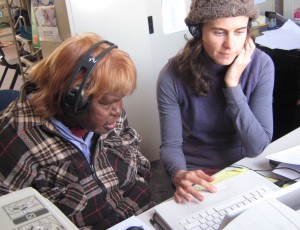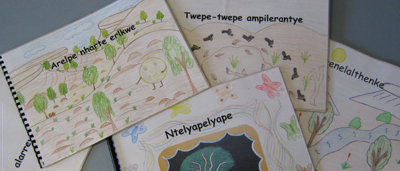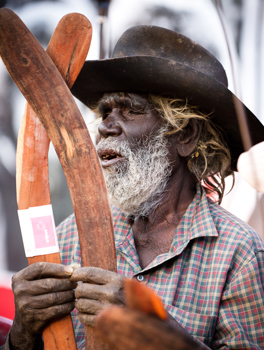Language & Culture
CLICK HERE TO LISTEN TO THE KAYTETYE LANGUAGE SONGS WRITTEN WITH MUSIC OUTBACK AT NEUTRAL JUNCTION SCHOOL AND TARA COMMUNITY, NT!!

Language songwriting –
Helping language preservation
Music education provides excellent opportunities to support Language and Culture programs in remote communities and schools. Taking these opportunities wherever possible, Music Outback has now become an important partner in the development of remote school cultural and first language curriculum, as well as in broader reaching language preservation programs.
Most Central Australian Indigenous language groups have reasonably large numbers of first language speakers who use it every day. Warlpiri and Arrernte for instance, have been written down for many years, and are in no danger of falling out of use. Other languages such as Anmatyerr and Alyawarr, while having plentiful populations of first language speakers, have only recently been written down. Kaytetye however, has less then 250 speakers using it on a daily basis, and with kids now losing fluency, it may fall out of use within one living generation.
 In Partnership – Community Elders, Linguists & Music Outback Foundation
In Partnership – Community Elders, Linguists & Music Outback Foundation
In its language preservation work, Music Outback teams work with linguists and community members to record traditional stories in language and develop them into first language contemporary songs. This process has proven to be very exciting for community elders who are the custodians of these stories, as otherwise they often find it difficult to interest young people in this aspect of their culture. With songs about important traditional stories being written in the first language, these songs are then enthusiastically learnt and sung by young kids, and language maintenance is supported.
Lena Ngamperle with linguist and music researcher Myfany Turpin
Stories Come First
These programs have strong support from community elders, and the process has underlined the fact that it is the stories and language that are most important. The passing of these stories down in a contemporary format such as modern song has proven to be a culturally relevant and important component of the long term life of local language and culture.

